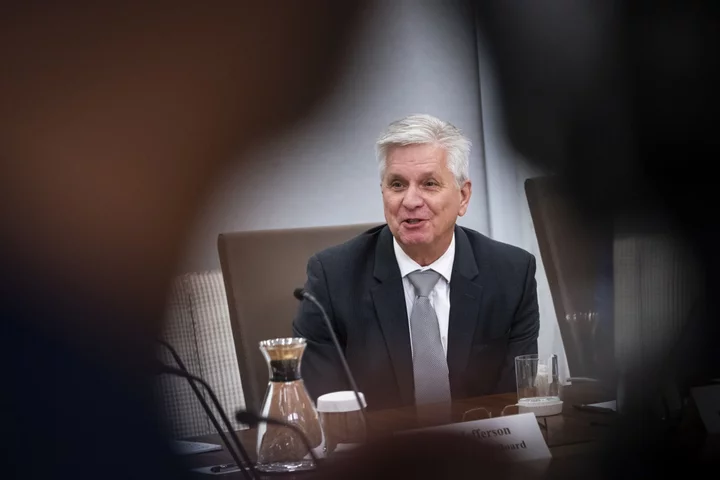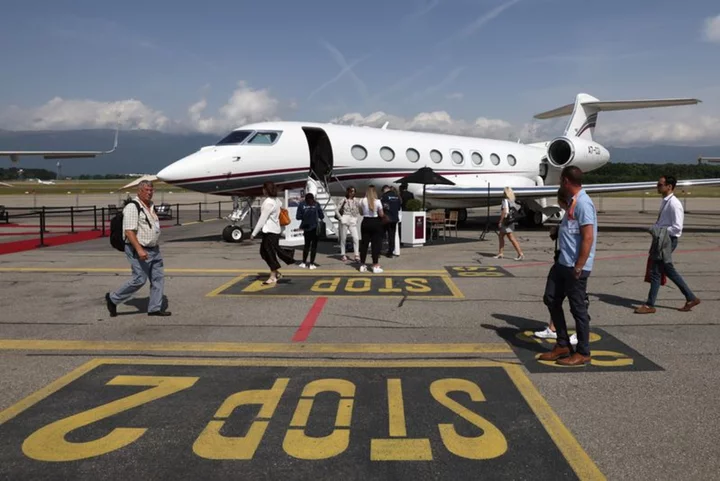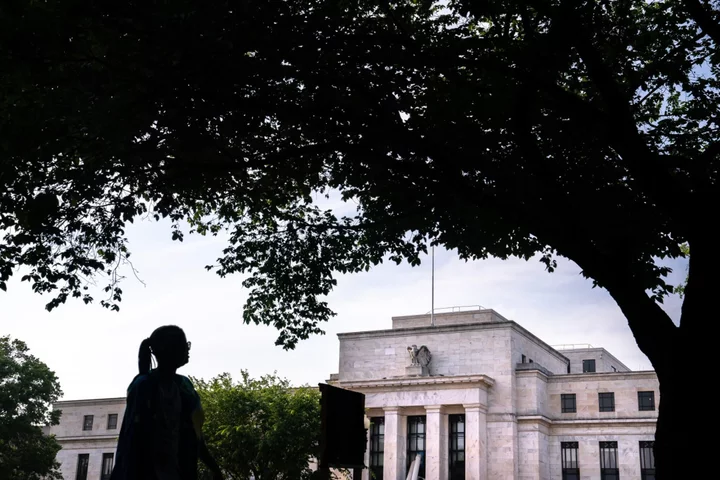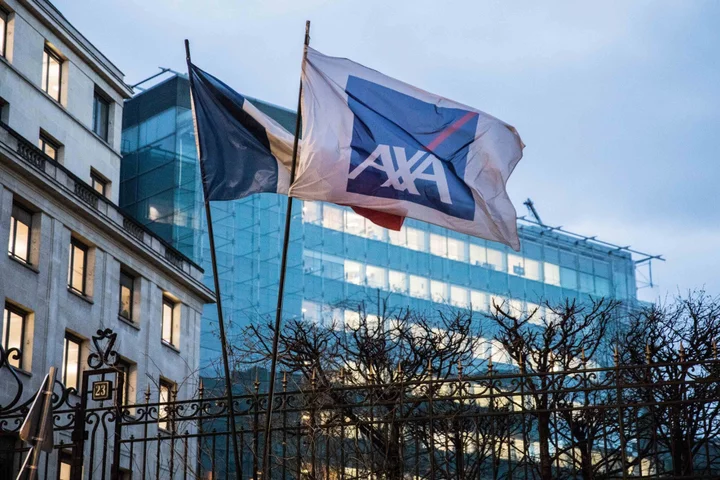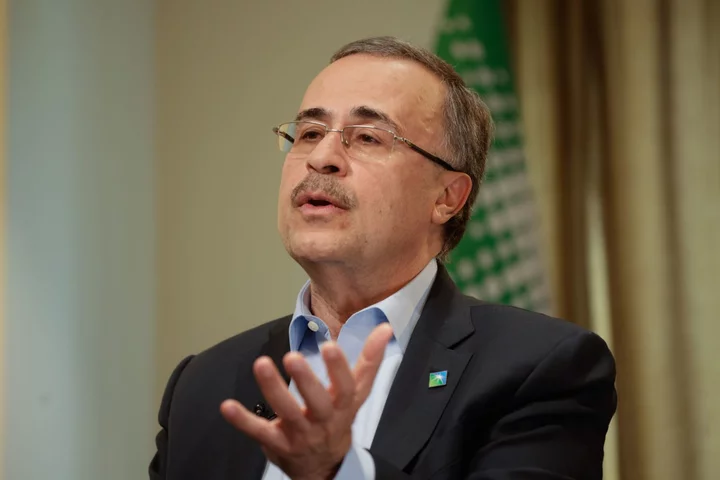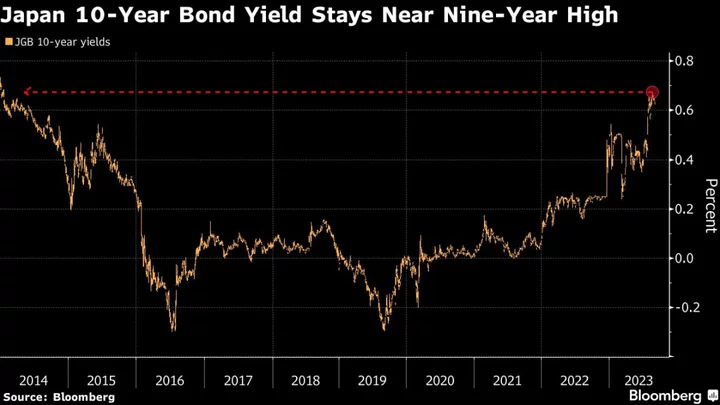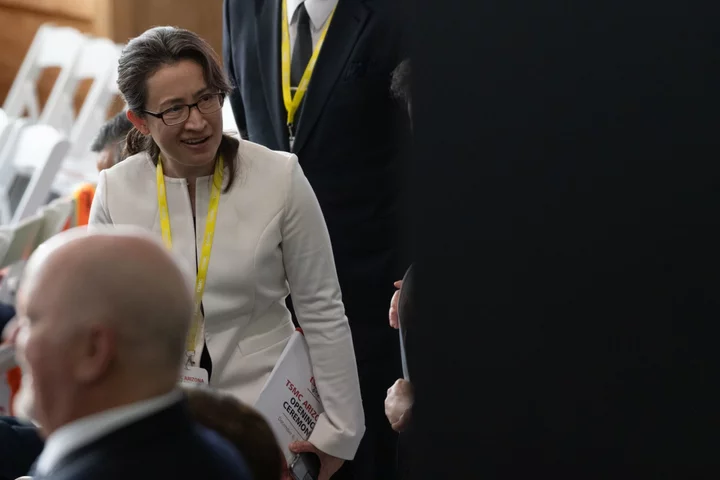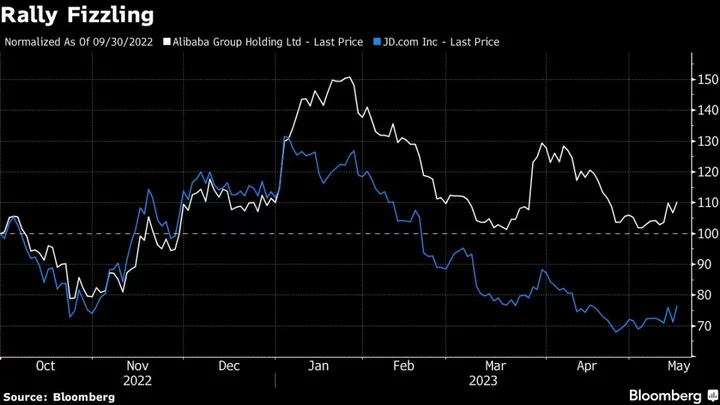Federal Reserve Governor Christopher Waller said policymakers can afford to “proceed carefully” with interest-rate increases given recent data showing inflation continuing to ease.
“There is nothing that is saying we need to do anything imminent anytime soon,” Waller said in an interview on CNBC Tuesday, signaling he supports holding rates steady at the central bank’s next meeting. “We can just sit there and wait for the data.”
Fed officials will gather on Sept. 19-20 and futures markets are pricing in almost no chance of a rate hike. US central bankers are trying to judge whether their benchmark lending rate, which they raised to a range of 5.25% to 5.5% in July, is restrictive enough to slow demand and return inflation to their 2% target. Excluding food and energy, prices rose 4.2% for the year through July.
Economic signals remain mixed. Demand for labor is gradually slowing. Non-farm payrolls gains have slowed to an average of 150,000 a month over the last three months, compared with 287,000 a month in the first five months of the year.
“The data last week clearly showed the job market is starting to soften,” Waller said. “If we can keep inflation coming down for the next few months, on trend at like two tenths a month, we are in pretty good condition.”
Waller has been an articulate voice for the policy committee’s hawkish tilt until inflation is on a clear downward trend. Waller said July 13 that he saw a need for two more quarter-point hikes this year “as necessary to keep inflation moving toward our target.”
He voted for the increase at the July 25-26 policy meeting.
Waller on Tuesday declined to say whether he would support another increase this year, saying that will depend on incoming data.
The Fed governor said he needed the data to show “a couple of months continuing along this trajectory before I say we’re done” raising interest rates.
Cleveland Fed President Loretta Mester, who has also called for tighter policy to curb price pressures, said the Fed may need to raise rates “a bit higher.”
“I can well imagine, from what I see so far, that we might have to go a bit higher, that we might have to raise the policy rate a bit more,” Mester said in an interview with German newspaper Börsen-Zeitung published Tuesday. “But there is still a lot of time before our next decision in September and we will get a lot of data and information by then.”
Overall growth remains buoyant, with estimates compiled by Bloomberg showing a median forecast for 2% annual rate of economic growth in the third quarter.
(Updates with comment from Mester in 10th paragraph.)

